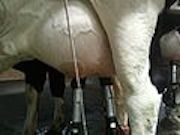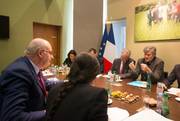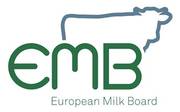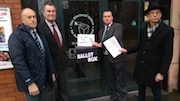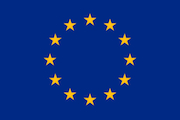EMB Newsletter March 2016
Newsletter as PDF
Contact
EMB - European Milk Board asbl
Rue de la Loi 155
B-1040 Bruxelles
Phone: +32 - 2808 - 1935
Fax: +32 - 2808 - 8265
Dear dairy farmers and interested parties,
Almost a year ago, the EU abolished the milk quota system. All rosy forecasts produced by the dairy industry, the farmers’ organisation COPA and policy-makers from the European Commission’s Directorate-General for Agriculture turned out to be – as we warned them – based on no more than greed and wishful thinking. April 1st did not bring Liberation Day but April Fools’ Day, as usual.
To estimate how far off the mark the forecasts of the European Commission have been, I looked up some ‘old’ reports and forecasts the European Commission based its policy on, preparing for the abolition of the quota system (‘soft landing’) and the reform of the CAP. A study carried out by GIRA (a consultancy and research company), commissioned by the European Commissioner of Agriculture and presented on 12 December 2012, envisaged a growth in EU milk production of 6.8 billion kg of milk from 2011 to 2016. On 5 December 2014, GIRA again presented a study for the European Commission, forecasting EU milk production, but this time from 2013 to 2018. The study estimates the growth in milk production in this period at 12.4 billion kg.
Data from Eurostat, however, point out that at the end of 2015 farmers in the EU had already increased milk production by more than 12 billion kg compared to 2011.
Furthermore, the European Commission still focuses on OESO and FAO studies on market developments, although the world has changed enormously because of geopolitical events.
On top of that, the President of the European Commission, Jean Claude Juncker, claims in his written reply to the European Milk Board, which asked Mr. Juncker to implement the Market Responsibility Programme to stabilize the milk market, that this “would go against the decisions taken by the legislator during the reform of the Common Agricultural Policy in 2013”. This is not even a ‘half-truth’. There are possibilities and conditions that make it possible to intervene: the right of initiative for the European Commissioner of Agriculture (in extreme situations) was implemented in the latest CAP, as the Treaty of Lisbon very clearly states what the objectives of the CAP should be.
I can only conclude that this European Commission lacks flexibility and the will to change course if necessary, but chooses to keep on focusing on outdated and obsolete studies, despite the consequences for milk producers. The motivation is obscure. Because the last argument for export-oriented EU member states in favour of liberalising the milk market - extra income from additional exports of dairy products – also seems to have become invalid: the Dutch Central Bureau of Statistics (CBS) collected data on the change in value from the export of Dutch dairy products in the first nine months of 2015 (compared to the first nine months of 2014). This shows a devastating picture: the Dutch dairy industry gained a total of 175.3 million euros in export value, partially outside the EU. At the same time, however, the Dutch dairy industry lost, for a large part in the EU, 725.3 million euros in export value and market share.
In the first nine months of 2015, one member state lost more than half a billion euros (550 million) in export value from dairy products.
This is the direct result of the Dutch dairy industry, the largest farmers’ organisation LTO Nederland, and to a large extent our Dutch policy-makers, pushing for the abolition of the milk production regulation system.
The above cost the milk producers in the EU about 40% of their income in 2015, reduced their cash flow by half in the same period, and pushed margins to a level far below zero.
Some policy-makers now see that we have to change course. Mr Le Foll, the French Minister of Agriculture, is among them and has made some proposals. It is of the utmost importance that the EMB is involved in the process of developing new measures and crisis instruments. To make them work for milk producers, too, instead of only for the dairy industry and the retail trade.
Because, as Albert Einstein once said, “We cannot solve a problem with the mindset that caused it”.
Sieta van Keimpema, EMB Vice-President
Measures towards production cuts by FrieslandCampina are only the tip of the iceberg
Supply reduction and production cuts on the table
EU agricultural policy cannot be used as a tool to pit European producers against each other any longer
The dairy sector crisis: The global impact of exports and local solutions
Report on Northern Ireland Farm-Gate Price Legislation
News from Brussels
Impressum
European Milk Board asbl
Rue de la Loi 155
B-1040 Bruxelles
Phone: +32 2808 1935
Fax: +32 2808 8265
E-Mail: office@europeanmilkboard.org
Website: http://www.europeanmilkboard.org

